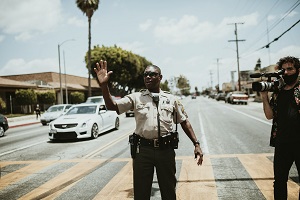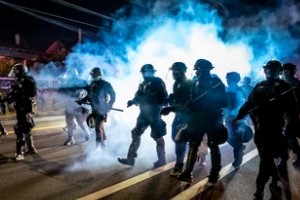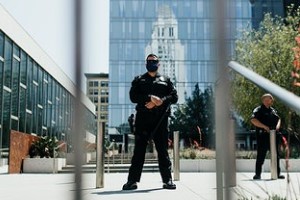If you have witnessed or been a victim of police brutality, you may wonder whether you have any rights when it comes to recording audio or video of the incident. Further questions may arise depending upon whether the officer knows that you are recording. In order to understand your rights when recording police brutality, you must first understand the laws surrounding this issue.
The Legality Of Recording Police Activity
 One of the primary concerns determining whether you are allowed to record police activity is if the individual who is recording is interfering with police duties. However, in general, you are fully within your rights to record the police.
One of the primary concerns determining whether you are allowed to record police activity is if the individual who is recording is interfering with police duties. However, in general, you are fully within your rights to record the police.
What is or is not interference is not strictly documented; officers are permitted to order citizens to cease recording if the officer believes they are obstructing the officer’s ability to perform their duties. An example of interference is standing immediately next to or in front of an officer who is trying to arrest someone.
Previous court precedent has determined that recordings are well within an individual’s constitutional rights. It is important to remember that recording in secret is not always permitted, depending on the state in which the encounter occurs. When in doubt, make sure that it is clear that you are recording.
Police may order you to unlock your phone or recording device and delete the video that you have recorded. You are not required to do so, even if you are under arrest. Without a warrant, the police do not have any right to demand that you do so.
While recording the video will almost always be permissible, audio is dependent on where the incident takes place. In some states, recording audio may be deemed to violate the officer’s privacy, especially if the recording is done without the officer’s knowledge.
While an individual may not have known at the time whether their state abides by one-party consent rules, it is an important factor to consider when submitting video as evidence, as the nature of how the audio was acquired may affect its permissibility in court. As with recording video, when in doubt, clearly stating that you are recording audio is important.
Considerations Of Police Retaliation For Recording
 Even if you abide by your legal rights to record the police, the police may retaliate against you by arresting you, physically harming you, and even destroying your recording device. Should this occur, you can bring legal action against the police for retaliation.
Even if you abide by your legal rights to record the police, the police may retaliate against you by arresting you, physically harming you, and even destroying your recording device. Should this occur, you can bring legal action against the police for retaliation.
However, previous lawsuits have yielded varied results, and questions of unlawful conduct and Fourth Amendment rights are central to the cases. If you believe that you have been arrested in retaliation for recording police brutality, contact a civil rights attorney who can guide you through the process of evaluating your situation.
What To Do When Leaving The Scene
 Make sure your recording is secure. If you have been arrested, remember that police are not within their rights to order you to delete the recording. If you are able to leave the scene freely, it is still important that you reach out to an attorney. Attorneys will be able to walk you through the specific requirements and laws for recording officers.
Make sure your recording is secure. If you have been arrested, remember that police are not within their rights to order you to delete the recording. If you are able to leave the scene freely, it is still important that you reach out to an attorney. Attorneys will be able to walk you through the specific requirements and laws for recording officers.
Thanks to smartphones, more people than ever before have access to recording devices. These recordings have been critical for helping to maintain evidence in cases of police brutality. Knowing your rights, even if it is after the fact, is vital to your safety.
If you are ever faced with experiencing police brutality or witnessing it as it occurs, remember that recording the incident could serve as critical evidence.
Work With Experienced Civil Rights Attorneys
Understanding your rights to record police brutality is important, regardless of whether you have been a victim or a bystander. Police brutality is a violation of an individual’s constitutional rights, and video or audio evidence of the incident can assist in overcoming some of the unique challenges of bringing a brutality or unlawful arrest charge against an officer.
This is especially true of qualified immunity, a legal term referring to an officer’s ability to avoid repercussions for their actions at a scene unless an individual can prove that they violated someone’s rights.
If you are unsure about whether you have a police brutality case or whether the audio or video that you recorded is permissible in court, reach out to an experienced civil rights lawyer. The Brown Firm would be happy to evaluate your situation and offer guidance about your next steps so that you can see the best outcome possible. Reach out to a civil rights attorney to schedule a consultation.

